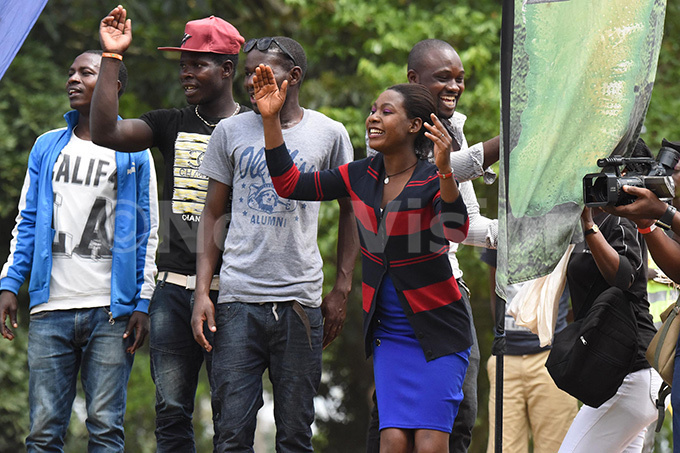Why leisure is an essential part of human life
Increased satisfaction with leisure and higher frequency of participation in leisure activities positively correlate with life satisfaction.
Action at garuga during the National motocross Championships. Its a typical leisure activity. PHOTOS/Mpalanyi Sentongo
Leisure is the time which an individual has free from work or other duties. It may be utilized for the purposes of relaxation, diversion, social achievement, or personal development, according to P Gist & S. F. Fava (1964).
There are a number of recreation facilities and services spread all over Uganda. Some people get involved in sports activities, spectating, music, comedy, tourism, travel and all sorts of entertainment for personal gratification. These recreation activities present numerous contributions to the participants.
The Merriam Webster dictionary defines recreation as refreshment of strength and spirits after work; also: a means of refreshment or diversion. This introduces a different understanding that justifies a list of typical activities, examples of which are; reading, playing or listening to music, watching movies or TV, gardening and studies. Many of these are individual - self indulged, than group activities, all aimed at self-gratification and the creation of well-being.
Well-being is "what is ultimately good for a person" (Stanford Encyclopedia of Philosophy), and as "good or satisfactory condition of existence; a state characterized by health, happiness and prosperity; welfare" (Dictionary.com).
Although what is good for one may not necessarily be true for others, recreation in general produces a state of benefit for those involved. This argument though, must take into account the fact that not all choice recreation is legal. Some activities - such as gambling, recreational drug use, or delinquent activities - may violate societal norms and laws.
Recreation is an essential part of human life and finds many different forms which are shaped naturally by individual interests but also by the surrounding social construction, Bruce C. Daniels (1995).
This is fundamentally true for without recreation, boredom is likely to hit hard. This relegates individuals to only the obligations that are necessary for existence, such as sleeping and eating.

People engaging in leisure activities tend to smile and laugh during these activities.
The result if physical inactivity and according to DER Warburton (2006) Physical inactivity is a modifiable risk factor for cardiovascular disease and a widening variety of other chronic diseases, including diabetes mellitus, cancer (colon and breast), obesity, hypertension, bone and joint diseases (osteoporosis and osteoarthritis), and depression.
Strong evidence shows that physical inactivity increases the risk of many adverse health conditions, including the world's major non-communicable diseases (NCDs) of coronary heart disease (CHD), type 2 diabetes, and breast and colon cancers, and shortens life expectancy. Because much of the world's population is inactive, this presents a major public health problem IM Lee (2012).
To avert health problems, it is therefore important to be active. Leisure and recreation can mitigate these risks as already reiterated above.
One of the most common relaxation activities in Uganda are music concerts. Music concerts are common and pull major crowds wherever they are organized within the country. The Uganda performing rights association whose mission is ‘To promote copyright and promote the value of music' boasts of 20,200 members.
Other recreational activities like comedy shows, car and motorcycle rallies are also available as well as football matches which are often well attended by spectators.
By spectating of pleasurable activities, different positive emotional states are ignited including amusement, joy, pride and inspiration.
This however is only true if the activity does not involve the taking of sides as is the case with competitive sports. In this case, the losing side may develop negative emotional states. In a study by Pressman, S. D, et. al. (2009), Enjoyable leisure activities are associated with: Lower levels of depression and negative affect, improved positive, physical and psychosocial states.
It is evident that people engaging in leisure activities tend to smile and laugh during these activities. When reminiscing about their experiences or talking to friends later, the same emotions are re-ignited.
The American humorist, novelist, writer, and lecturer, Mark Twain (November 30, 1835 - April 21, 1910) in his book, "The Chronicle of Young Satan," Mysterious Stranger Manuscripts said; Power, Money, Persuasion, Supplication, Persecution--these can lift at a colossal humbug,--push it a little-- crowd it a little--weaken it a little, century by century: but only Laughter can blow it to rags and atoms at a blast. Against the assault of Laughter nothing can stand.
Since laughter is said to be the best medicine and is atomic in lifting the spirits of people, it contributes to their well-being and social satisfaction. The biblical view is that, a glad heart improves the body and the depressed heart saddens the spirit. (Proverbs 15:13, Aramaic Bible in Plain English).
Increased satisfaction with leisure and higher frequency of participation in leisure activities positively correlate with life satisfaction. Lloyd & Auld, (2002). Also, through participation in leisure activities people build social relationships, feel positive emotions, acquire additional skills and knowledge, and therefore improve their quality of life. A Brajša-Žganec (2011).
Robert Semakula